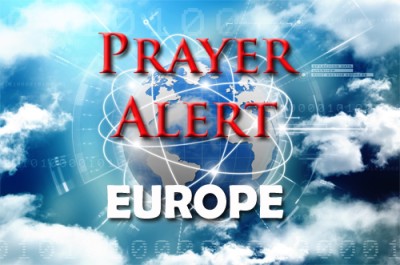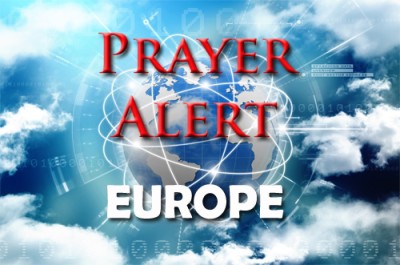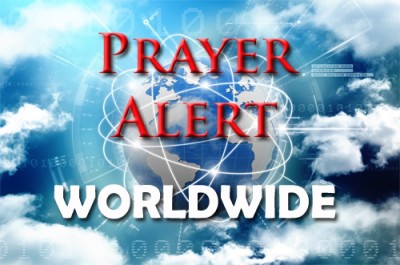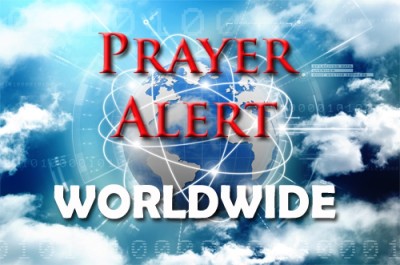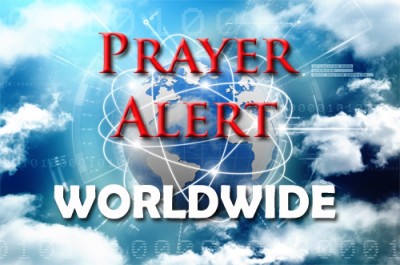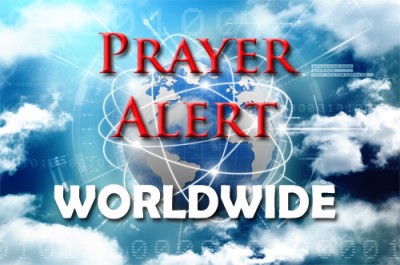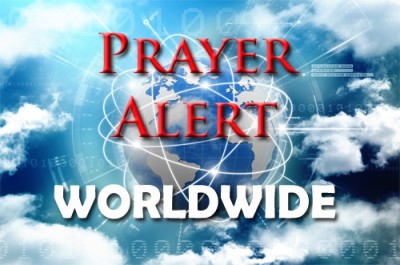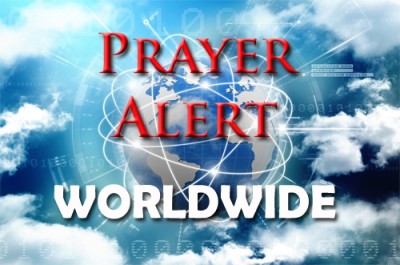Ukraine: Situation report
04 Nov 2022Fighting and shelling continues in eastern and southern Ukraine, and strikes in other areas have caused additional destruction of civilian infrastructure and a large number of civilian deaths and injuries. The civilian toll has reached 14,000 confirmed deaths since the beginning of the war. Nearly 18 million people (40% of Ukraine’s population) need humanitarian assistance, and the situation is expected to deteriorate further in the winter months. As villages and towns are being liberated from Russian occupation in Ukraine’s ongoing counteroffensive, significant needs remain - and the Ukrainian advances may halt with the arrival of winter. Many communities still lack access to clean water, electricity, and mobile phone service. Many have limited food supplies. The clean-up and rebuilding effort will take some time. Pray for: The church and ministry networks across Ukraine and neighbouring countries who are mobilising to bring food, clothing, first aid and medicine; evacuation and temporary accommodation assistance; psychological and spiritual support; rebuilding damaged properties and preparing for winter.
Europe: Heightened media repression
04 Nov 2022Russia’s war waged against Ukraine has created devastating consequences for freedom of the press. Reporters have been killed and injured in the field and censorship not seen since the Soviet period’s massive disinformation. Five journalists and media workers died from gunfire during the first month of Russia’s offensive. The Russian military has targeted news sources in territories it occupies and bullies the local media to cooperate. The government has complete control of Russian news and extensive wartime censorship, blocking the media, and pursuing non-compliant journalists. Many are forced into exile. In 2021 Putin toughened the law, labelling the media as ‘foreign agents’. This information control does not stop at Russia’s borders. The Kremlin is imposing its version of the war on its neighbours, especially Belarus, where independent journalists have been persecuted since the 2020 controversial presidential election, and 20+ media workers languish in prison. (Globally 59 journalists were killed and 524 imprisoned this year).
USA: Violent extremism before US election
04 Nov 2022A violent attack on Speaker of the House Nancy Pelosi's husband fractured his skull. He is recovering from surgery just a week before the midterm elections. A few hours later the government issued a bulletin warning of a ‘heightened threat’ of domestic violent extremism against candidates and election workers driven by individuals with ‘ideological grievances. Also, the US Department of Justice reported a man had pleaded guilty to making multiple phoned death threats against a Democratic congressman, stating he would come to Washington with a firearm. The political system is in a crucial moment. Republican and Democrat votes will determine who controls Congress next year. Republicans warn this is the last chance to put a check on Joe Biden's presidency. Democrats say American democracy is at stake because numerous Republican candidates refuse to accept 2020’s election results. A violent wave is building. In the first three months of 2022, more than 1,800 incidents were documented.
South Korea: Halloween horror
04 Nov 2022154 people were killed in a crush in South Korea's capital, Seoul. Twenty foreign nationals were among the dead, another 159 were injured. A jam of people developed as huge crowds gathered in a popular nightlife area for Halloween. Most victims were teenagers and adults in their 20s, the crush began in a narrow alley. A survivor said, ‘Even if you stand still, someone pushes you from the front and someone from the back. Like a wave. I realised something was wrong. I managed to climb onto a high step. People were suffocating, screaming, getting squeezed, falling. There were just too many people. I was on the step just watching everything happening. They didn’t know what to do and there was nothing I could do.’ There was nothing anyone could have done to save others or themselves. Some victims were unidentified because they were below the age of 17 or without an adult ID.
Gujarat suspension cable foot bridge had been closed for refurbishment. Then a week after it re-opened during Diwali celebrations it collapsed, throwing hundreds into the water. 135, mostly women, children and elderly, died. Army, Navy, Airforce, NDRF and the Fire Brigade conducted a search operation to rescue people out of the Macchu river in the worst public safety tragedy to hit the country in recent years. As authorities investigate the incident, questions are being raised about how the narrow walkway collapsed and the role of Oreva, an electrical manufacturing company, tasked with maintaining the colonial-era structure. Nine people were arrested and are being investigated for culpable homicide charges. All are associated with Oreva and include two managers, two ticket clerks, two contractors and three security guards. Oreva was a clockmaker before diversifying into electronics. See also
Pakistan: News from Barnabas Aid
04 Nov 2022‘With smiling faces they are praising God and giving thanks in their trials and sufferings,’ reported a mission worker, describing Christians in the area worst affected by devastating floods in August and September. He was helping to distribute Barnabas-funded food, clean water and practical aid to remote Christian communities where no other aid had reached. Christian farmer, Chand, felt very blessed by God who had provided ‘for His people through His people’. Pray that the joy of the Lord continues to be their strength during these trials. Praise God that Pakistan's Supreme Court has granted bail to three Christians accused of blasphemy. They were charged after distributing Christian literature and posting offensive material online. Pray that they will all now be acquitted or the cases against them dropped and pray for their protection from attack by zealous Muslims.
Global: Governments change
04 Nov 2022Brazil’s Lula da Silva’s presidential election victory brings renewed hope for our largest rainforest as he pledged to combat climate change and reverse his predecessor’s policies. Pray for Lula to keep his pledges to protect the Amazon. November 8th is the USA’s midterm election day. Black, Hispanic, and young people are concerned about crime at polling stations. South Africa’s new Zulu king, Misuzulu kaZwelithini, has been officially recognised as the head of the country’s influential traditional monarchy by President Ramaphosa saying, ‘You have picked up the mighty spear that fell. May your steady hand bring stability to AmaZulu kingship.’ Pray that the new king and government unite to bring rural areas into prosperity. At the time of writing, Itamar Ben-Gvir, a fringe Palestinian-hating religious far-right extremist, will probably join Benjamin Netanyahu to form a far right coalition that would change the nature of Israel’s political system.
DRC: UN troops make ‘strategic withdrawal’
04 Nov 2022The United Nations peacekeeping mission in the Democratic Republic of the Congo (DRC) has withdrawn troops from the eastern military base of Rumangabo, ceding ground in the battle against the M23 rebel group. M23 resumed fighting and accused the DRC government of failing to honour an agreement to integrate its fighters into the army. The fresh clashes saw the rebel group make advances across North Kivu province. The loss of the key military base is a setback for DRC and a further blow to the security outlook in the conflict-hit east. Thousands remain displaced from the region. Kiwanja’s fall is another humiliation for the government in Kinshasa. It raises serious questions, once again, as to how an extremely small rebellion can do this on their own. UN experts found solid evidence Rwanda had been providing military aid to M23 in eastern DRC. Rwanda’s government has disputed the findings.
